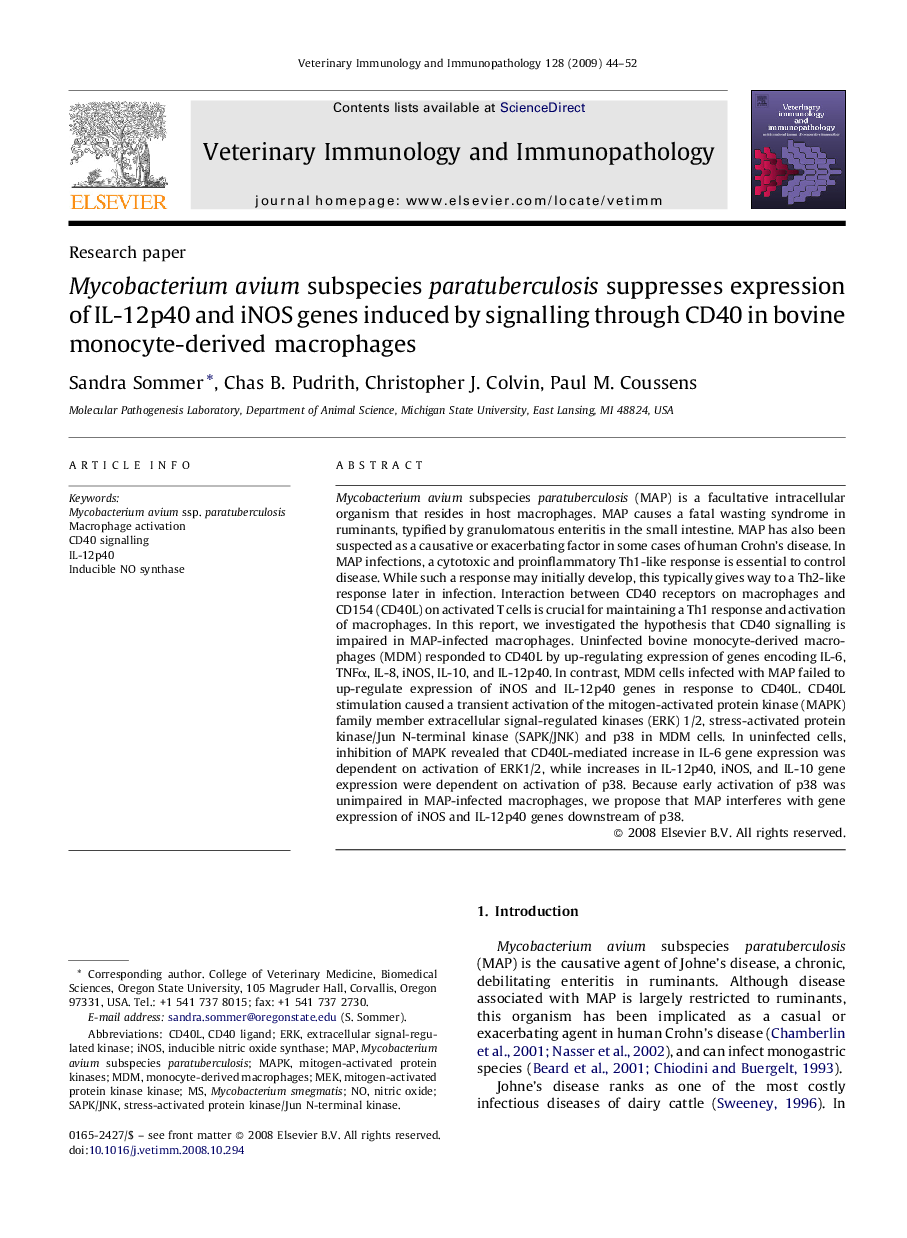| Article ID | Journal | Published Year | Pages | File Type |
|---|---|---|---|---|
| 5797039 | Veterinary Immunology and Immunopathology | 2009 | 9 Pages |
Mycobacterium avium subspecies paratuberculosis (MAP) is a facultative intracellular organism that resides in host macrophages. MAP causes a fatal wasting syndrome in ruminants, typified by granulomatous enteritis in the small intestine. MAP has also been suspected as a causative or exacerbating factor in some cases of human Crohn's disease. In MAP infections, a cytotoxic and proinflammatory Th1-like response is essential to control disease. While such a response may initially develop, this typically gives way to a Th2-like response later in infection. Interaction between CD40 receptors on macrophages and CD154 (CD40L) on activated T cells is crucial for maintaining a Th1 response and activation of macrophages. In this report, we investigated the hypothesis that CD40 signalling is impaired in MAP-infected macrophages. Uninfected bovine monocyte-derived macrophages (MDM) responded to CD40L by up-regulating expression of genes encoding IL-6, TNFα, IL-8, iNOS, IL-10, and IL-12p40. In contrast, MDM cells infected with MAP failed to up-regulate expression of iNOS and IL-12p40 genes in response to CD40L. CD40L stimulation caused a transient activation of the mitogen-activated protein kinase (MAPK) family member extracellular signal-regulated kinases (ERK) 1/2, stress-activated protein kinase/Jun N-terminal kinase (SAPK/JNK) and p38 in MDM cells. In uninfected cells, inhibition of MAPK revealed that CD40L-mediated increase in IL-6 gene expression was dependent on activation of ERK1/2, while increases in IL-12p40, iNOS, and IL-10 gene expression were dependent on activation of p38. Because early activation of p38 was unimpaired in MAP-infected macrophages, we propose that MAP interferes with gene expression of iNOS and IL-12p40 genes downstream of p38.
